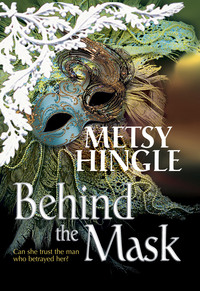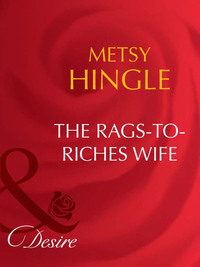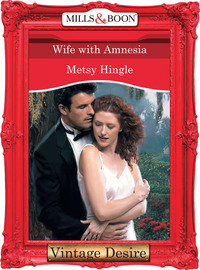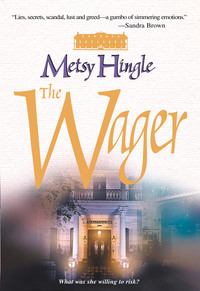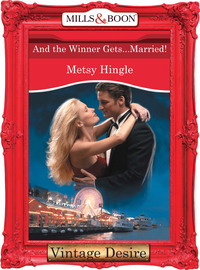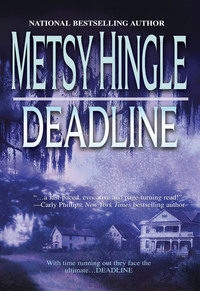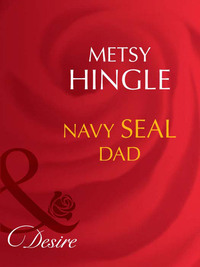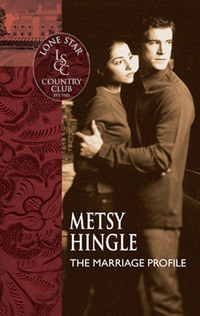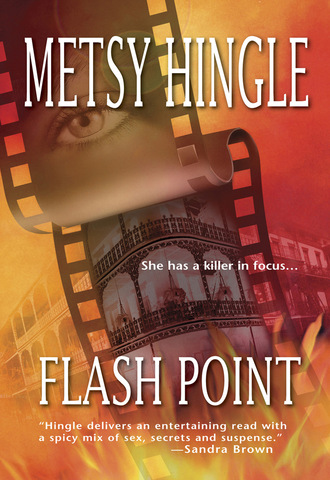
Полная версия
Flash Point

“I guess it’s fortunate that I showed up when I did.” Following his lead, she opened the passenger door of the car, and nearly gagged on the stench of stale whiskey and cigars as she slid inside. Still, she forced herself to pull the door closed, shutting out the noise from the street musicians and revelers who’d flocked to New Orleans’ French Quarter to celebrate Halloween.
“Fortunate is right, missy. I’m a busy man,” he said. “I’ll have you know I’ve got better things to do with my time than wait around for the likes of you.”
“Then let’s not waste any more of each other’s time, Doctor. Did you bring the document?”
“’Course I brought it. But first I want to see the money.”
She opened the black tote bag that was filled with $100,000 in cash. Opening it, she angled it so that the light from the street lamp fell on its contents. There was no mistaking the lust in the man’s bloodshot eyes. When he reached for the bag, she snapped it closed. “Not so fast, Doctor. First I want the document.”
“Sure. Sure.” He fumbled inside his coat pocket, drew out an envelope and shoved it at her. “Here.”
“You sure this is the only copy?”
“What? Yeah, it’s the only one,” he muttered, still distracted by all the cash.
She tucked the envelope inside her purse and reached for her gun. “Then I guess this is goodbye, Doctor,” she said politely as she pulled the trigger.
Also available from MIRA Books and METSY HINGLE
BEHIND THE MASK
THE WAGER
DEADLINE
Flash Point
Metsy Hingle

For Valerie Gray, Editor and Friend With thanks and affection for the guidance, creative vision and unending support
ACKNOWLEDGMENTS
While I was creating this book, I spent countless hours alone with the characters of this story as I tried to bring them to life. But the finished product would not have been possible without the help of many people who assisted me both technically and emotionally. My heartfelt thanks go to the following people for their help in bringing life to Flash Point:
Dianne Moggy, editorial director of MIRA Books, for her trust and support.
Karen Solem, my agent, for her unending support and guidance, and for being my voice of reason.
The amazing MIRA staff, who continue to astound me with their support.
The MIRA art department, which is truly the best in the business.
The MIRA public relations team of Tania Charzewski, Sarah Rundle and Maureen Stead for their support.
The wonderful fans who allow me to entertain them with my books.
Diane Hingle Anding, my sister-in-law and friend, who makes me proud we are family.
Sandra Brown, my dear friend, for her friendship, love and support.
Carly Phillips, friend and fellow writer, for her friendship, support and e-mails.
Dixie Kane and Hailey North, dear friends and fellow writers, for their love and support.
A special thank-you goes to my children and family, whose love and support enable me to spin my tales of love, hope and happily-ever-after.
And, as always, to my husband, Jim, who is my love, my family and all things to me.
Dear Reader,
Thank you so much for picking up a copy of Flash Point. I’m both grateful and honored that you’ve chosen my book when there are so many wonderful books available. If this is the first time you’ve read my work I do hope it won’t be the last. For those of you who are familiar with my books, you won’t be surprised to find Flash Point is set in my hometown of New Orleans, a city and people that continue to inspire me and make me proud to call them my own. I hope you enjoy reading my latest tale of romance and suspense as much as I enjoyed writing it.
As always, one of the great joys for me as a writer is hearing from readers, and I’d love to hear from you. In fact, as a special thank-you, I’ve had a commemorative bookmark created just for Flash Point and, while supplies last, I’ll send one to each reader who writes and requests one.
Happy holidays!
Metsy Hingle
P.O. Box 3224
Covington, LA 70433
U.S.A.
www.metsyhingle.com
Contents
Prologue
Chapter One
Chapter Two
Chapter Three
Chapter Four
Chapter Five
Chapter Six
Chapter Seven
Chapter Eight
Chapter Nine
Chapter Ten
Chapter Eleven
Chapter Twelve
Chapter Thirteen
Chapter Fourteen
Chapter Fifteen
Chapter Sixteen
Chapter Seventeen
Chapter Eighteen
Chapter Nineteen
Chapter Twenty
Prologue
“It’s about damn time you showed up. I’ve been waiting in this alley for twenty minutes and nearly got mugged twice.”
“I was detained,” she said coolly, giving no indication of how much she detested having to deal with the sorry creature.
“Well, you’re damn lucky I waited,” he informed her, his Mississippi drawl even thicker due to the liquor. “Another two minutes and I’d have been gone.”
“Then I guess it’s fortunate that I showed up when I did.” Following his lead, she opened the passenger door of the car and nearly gagged on the stench of whiskey and stale cigars as she slid inside. Still, she forced herself to pull the car door closed, shutting out the noise from the street musicians and revelers who’d flocked to New Orleans’ French Quarter to celebrate Halloween.
“Fortunate is right, missy. I’m a busy man,” he said, puffing up his chest and straining the buttons on his dated suit coat. “I’ve got better things to do with my time than to wait around for the likes of you.”
Better things like drowning in a bottle of whiskey or slithering into the nearest casino, she thought, even more repulsed by the man now than she’d been when he’d first sought her out six months ago. “Then let’s not waste any more of each other’s time, Doctor. Did you bring the document?”
“Of course I brought it. But first I want to see the money.”
She retrieved the black tote bag that she’d filled with $100,000 in cash. Opening it, she angled it so that the light from the streetlamp fell on its contents. There was no mistaking the lust in the man’s bloodshot brown eyes as he gazed at the money. Like a drug addict about to get his next fix, she thought. But when he reached for the bag, she snapped it closed. “Not so fast, Doctor. First, I want the birth certificate.”
He fumbled inside his coat pocket, drew out an envelope and hesitated. He narrowed his beady eyes. “You know, your daddy sure loved that little girl. Used to call her his princess. I imagine he’d have paid a lot of money to find out she didn’t die in that fire after all.”
“Unfortunately for you, my father’s dead. And I can assure you I don’t place the same value on her that he did. My one concern is protecting my family’s good name. It’s the only reason I agreed to pay you for that birth certificate.”
He tapped the envelope against his palm, gave her a measuring look. “I imagine your sister would be willing to pay a great deal to learn who her daddy was. Of course, if you was to—”
“I don’t have a sister,” she snapped. Fury caused her vision to blur for a moment before she regained control of herself. More calmly she said, “And I suggest you quit trying to shake me down for more money, Doctor. Otherwise, I might reconsider whether or not I’ve made a mistake by not going to the police and telling them about your offer.”
“Now, hang on a second,” he said, alarm in his voice.
“There’s no need to go dragging the police into a little business transaction between friends.”
“You and I are not friends, Doctor. And I doubt that the police would see your proposal as a business transaction,” she said, toying with him and enjoying the fact that she was making him nervous.
“We had a deal and it’s too late for you to try to back out now,” he countered, and shoved the envelope at her.
She took the envelope. And while he pounced on the bag of cash and began pawing through the stacks of bills, she withdrew the faded sheet of paper from the envelope. An icy-cold rage whipped through her as she stared at the form, read the names and examined the signatures. For a moment she was eight years old again and listening at the door as her father told her mother he was leaving them. She crushed the paper in her fist. Reaching deep down inside of herself, she channeled her anger, just as she had that night all those years ago, and focused on what had to be done. “You’re sure this is the only copy?”
“What?” He glanced up briefly. “Yeah, it’s the only one,” he muttered and went back to counting the cash.
She tucked the envelope and crumpled paper inside her purse and reached for the gun. “Then I guess this is goodbye, Doctor,” she said politely and calmly pulled the trigger.
One
“No,” Kelly Santos cried out as flames went up all around her. Bright orange tongues of fire licked at the curtains and raced greedily up the walls, devouring the rose-patterned paper. Terrified, Kelly turned in a circle, searching for a means of escape. But everywhere she looked there were more flames shooting up around her.
Surrounding her.
Trapping her.
She struggled to see past the blaze and to find her way out of the inferno. But the fire was so hot, the smoke too thick. Her eyes stung from the heat. Tears streamed down her cheeks. As the smoke filled the room, she began to cough. Her lungs burned, felt as though they would burst in her chest at any moment.
Have to get out. Have to get out.
Scarcely able to breathe now, she tried waving the smoke away from her face so she could get her bearings. And then she saw the door. Her heart leapt in her chest—part relief, part panic—as she noted the burning beam that dangled overhead in the space between her and the door. Terrified that the beam would collapse on top of her, Kelly was afraid to move, yet afraid to stay still.
Suddenly an explosion ripped through another section of the house and, without thinking, she raced toward the door. The moment she reached it, she grabbed the doorknob.
She screamed as the hot metal scorched her fingers, burning her flesh. Sobbing, she fell to the floor, cradling her throbbing hand. As she lay there, the burning beam came crashing down to the floor and landed in the spot where she’d stood only seconds earlier. Kelly screamed again. Petrified and in pain, she crawled over to a corner of the room and pressed her body against the wall. “Tell Nana where you are! Come to Nana,” she heard a familiar voice call, first by the door, then by the window. Paralyzed with fear, she said nothing. And as the flames ravaged the room, filling it with smoke and depleting her oxygen, she started to choke.
Coughing violently, Kelly jerked awake. Still unable to breathe, she sat up in bed and continued to struggle for air for several moments longer. Pressing a hand to her chest, she dragged air into her lungs. It was just a bad dream, she told herself as she tried to shake off the vividness of being trapped in the fire, of being overcome by the smoke and the heat. With unsteady fingers, she brushed the hair away from her face, discovered her brow damp with perspiration.
“Just a dream,” she murmured aloud. Not real. There were no flames, no stench of burning wood and fabric and smoke. There was no fire. Just a dream. Unwilling to delve into what might have triggered the old nightmare this time, Kelly closed her eyes and drew in one breath, then another. She followed the ritual she’d used since childhood to rid herself of the aftereffects of the nightmares and visions that had plagued her most of her life. Continuing to focus on her breathing, Kelly attempted to erase from her mind all traces of the dream by replacing the fire and smoke with the soothing images of blue skies, white sandy beaches and a rolling surf.
As her breathing steadied, she could almost hear the surf rushing to the shore, could smell the saltwater in the air, could feel the cool breeze on her cheek. Finally, Kelly opened her eyes. She blinked once, twice and a third time as she adjusted her eyes to the darkness of the room. Scanning her surroundings, she noted the drawn drapes, could make out the table with her camera equipment atop it, her suitcase just inside the door. A glance at the illuminated clock on the bedside table read a few minutes past ten. Morning or night? she wondered, and then she remembered.
New Orleans.
She was in New Orleans. Suddenly all the events of the past few days came rushing back. Returning from the month-long photo shoot in Europe to find a message on her answering machine from the Mother Superior, telling her that Sister Grace was dead. The message had been more than two weeks old.
Two weeks.
Sinking back against the pillows, Kelly closed her eyes again. Silent tears slid down her cheeks. They’d buried the only person in the world who had ever cared about her and she hadn’t even managed to attend the funeral. Silently she cursed herself for the hundredth time for not checking her machine for messages. It didn’t matter that the only persons who ever called her were Sister Grace on holidays and her agent who had known where she was. She still should have checked the thing. If she had…if she had, she might at least have made it back in time to see the nun one last time.
A new wave of grief washed over Kelly and she covered her face with her hands. Sobbing, she gave in to the pain and wept aloud. And as she sat in the dark hotel room and cried, she thought about the nun who had been the closest thing to a mother she’d ever known. The tiny nun in her navy-and-white habit had been the one person who had made growing up at St. Ann’s Orphanage bearable.
Memories came tumbling back. Sister Grace wiping tears from her six-year-old cheeks when a potential adoptive family had returned her to the home, claiming she was the devil’s spawn because of the visions. Sister Grace soothing her eight-year-old heart when she’d realized no one was ever going to want her to be their little girl. Sister Grace comforting her as an unhappy eleven-year-old when the other kids taunted her, whispering that she was a witch. And Sister Grace rescuing her as a lonely thirteen-year-old by giving her her very first camera. That camera had been a lifeline for her. It had opened a window to the world and eventually it had provided her with a means of escape.
And she had escaped, she’d escaped and had never once looked back. After all, with the exception of Sister Grace, New Orleans held no fond memories for her. She’d closed that door to her life more than ten years ago, allocating the unhappy memories of her early years to a sad chapter in her life. It was a chapter she’d never intended to open again. Just as she’d never intended to return to New Orleans again.
Yet she had returned. Only, she’d come back too late, Kelly thought, crying harder. Too late to thank Sister Grace for believing in her all those years, for caring about her when no one else did. Too late to tell Sister Grace how much she’d meant to her, how much she’d loved her.
Startled by the sudden squeal of a police siren, Kelly looked up. Still sniffling, she wiped her eyes with the sleeve of her pajamas and then climbed out of the bed. She walked over to the window, pushed aside the drapes and looked down at the street below. Traffic had come to a halt and had shifted over to the far right lane. As she watched, two police cars with flashing lights came speeding past the hotel and continued toward the Mississippi River.
Once the police units had gone, traffic started to flow again. She noted that, despite the lateness of the hour, people were out in force. Cars hurried from one red light to the next and pedestrians, mostly in pairs or groups, waited on both sides of the street for the arrows to signal it was safe for them to cross. No doubt tourists or convention-goers, she reasoned, since few residents ever paid heed to the signal lights.
A blur of movement at the far corner of the street caught Kelly’s eye. A man, sporting a black cowl with horns and waving a devil’s red-tipped pitchfork in his hand, raced up to the crosswalk. Several similarly clad people rushed up behind him. She’d almost forgotten that it was Halloween. The devil led a group of what she suspected were college kids across the busy Canal Street intersection. Evidently they were planning a big night of partying in the French Quarter. Although at twenty-eight she wasn’t a great deal older than the college crowd, the idea of partying held little appeal for her. Turning away from the window, she stared over at the rumpled bed and debated whether or not to go back to sleep.
She was still jet-lagged, since she’d barely returned to New York before she’d hopped a plane for New Orleans. And the crying hadn’t helped. Yet, recalling the reason she’d awoken in the first place—the old nightmare about being trapped in a fire—she knew going back to sleep would be an exercise in futility. Besides, she reasoned, her body was still on European time and that little catnap had taken the edge off her exhaustion. Deciding that a shower and something to eat would be a better idea, she headed for the bathroom.
When Kelly exited the bathroom a short time later, she felt marginally better. The shower had helped. She suspected the crying had, too, since she’d allowed herself little chance to grieve after learning of Sister Grace’s death. She’d simply begun making the necessary arrangements to come to New Orleans. Despite the protests of Wyatt, her agent, at her abrupt departure, she’d been right to come back. She’d needed to come back. Not for Sister Grace, but for herself because she’d needed to say goodbye. Once she had done so, perhaps she’d be able to close that last link to her past and to the girl she had once been.
Kelly’s stomach grumbled. Pressing a hand to her middle, she acknowledged a hollow ache in her belly that had nothing to do with grief and everything to do with the simple fact that she was famished. When in the world had she eaten last? she wondered. And since she couldn’t remember ingesting anything besides coffee since the return flight from Paris, she decided it probably had been much too long.
After slipping into her favorite pair of DKNY black jeans, she pulled on a black-and-ivory cashmere turtleneck and the designer boots she’d picked up for a song while shooting in Italy. She ran a brush through her blond hair, scanned her appearance in the mirror and frowned at how pale she looked. Digging through the cosmetic samples one of the makeup artists had given her, she chose a soft pink blush and rubbed some on her cheeks to give her face some color. Then she swiped the rose-colored lipstick on her mouth. Satisfied with the results, she walked over to the table and picked up the hotel room key. She slipped it into her jeans pocket, grabbed her camera bag, which also functioned as her purse, and headed out the door in search of something to eat.
She found just what she wanted in one of the dozen or so hole-in-the-wall restaurants located in the French Quarter. What the place lacked in decor it more than made up for in great-tasting food—a fact that Kelly discovered after biting into the shrimp po’boy sandwich she’d ordered. In no time at all she had polished off the crisply fried shrimp served on half a loaf of French bread, topped with lettuce, tomatoes, pickles and mayonnaise. She’d even washed down the monster-size sandwich with a bottle of ice-cold beer. Feeling stuffed from her meal, Kelly exited the restaurant, positive she wouldn’t be able to eat or drink a thing for at least a week.
But by the time she’d made her way down to Jackson Square and checked out the renovations under way at the historic Saint Louis Cathedral, she was already craving a cup of café au lait and beignets. Cutting across the Square, Kelly headed for the Café du Monde.
The place was packed—not an uncommon sight given that the sidewalk café, famous for its coffee and sugar-covered doughnuts, remained open twenty-four hours a day, seven days a week. The fact that it was Halloween and people were in a party mood only added to the frenzied pace. Spying a table in the far corner that looked out over the sidewalk, Kelly quickly wound her way through the tight spaces to claim it. She flopped down in the seat. Within minutes a tired-looking young man dressed in a plain white apron and matching hat appeared before her. He stacked the used cups, saucers, spoons and paper napkins on his tray and swiped the tabletop with a damp cloth that Kelly suspected had been white at one time, but was now a dingy gray.
“What can I get for you, ma’am?” he asked in a drawl that hinted at northern Louisiana roots.
“Café au lait and an order of beignets.”
“Decaf or regular?”
“Better make it decaf,” she replied, deciding she’d have a difficult enough time sleeping without the added caffeine.
“Be back in a sec,” he told her as he took off in the direction of the kitchen.
There had been a time when she would never have even attempted to sit like this in a crowded café, Kelly admitted. Fear that she would find herself in a crush of people and that touching someone might set off a vision about a person’s past or future had made her avoid crowds when she’d been growing up. But the years of living in New York and her frequent travels had helped her. She’d learned to control her reactions far better as an adult than she had as a young girl or teenager.
While she waited for her order to arrive, Kelly did what she always did. She picked up her camera and looked out at the world through the viewfinder. Using the telephoto lens, she panned the scene across the street in front of Jackson Square. Named after Andrew Jackson, the onetime president and war hero who had been immortalized in the statue of him astride his horse, the Square had once been the heart of the city. But even as the city’s boundaries expanded and sprawled far beyond the French Quarter, the area remained the center of activity for the city, and a major destination spot for both locals and tourists alike. She scanned the area to the right where a string of fortune-tellers had set up tables along the side of the Square and were attempting to entice passing pedestrians to have their fortunes told. Kelly clicked off shots of one gypsy-clad woman as she drew her finger down the length of a man’s palm. Judging from the fellow’s expression, he seemed more concerned with the woman’s cleavage than her predictions of his future.
Shifting her focus to the left, she noted only two artists working—one doing a portrait in chalk of a woman dressed like Elvira, Mistress of the Dark, and the other doing a charcoal sketch of a middle-aged couple. She clicked off several shots, then scanned the length of the block in search of more of the artists who supported themselves by using their skill with a pencil or brush. But she spied only one. Far fewer than there had been when she’d left the city after graduating high school, she thought, and lowered her camera in disappointment.
But the moment the horse-drawn carriage pulled into view, she lifted her camera once more. The driver no sooner emptied the vehicle of passengers before he began loading new patrons into the carriage. As long as she could remember, the old-style carriages had been a fixture in the Quarter, and she began clicking off shots. This one was painted in black and white and was hitched to a chocolate-colored mule that sported a hat with flowers and an orange-and-black ribbon attached to its swishing tail. She adjusted her lens and focused on the carriage’s driver. Judging from the way he doffed his hat and waved his arms, the man was giving his passengers their money’s worth. She could easily imagine him in that same spot more than a century ago with a bevy of southern belles ready to embark on a spin around the city’s streets.





